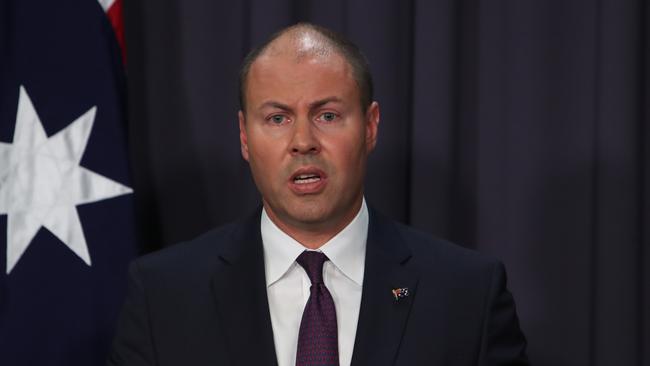David Koch: Bank inquiry recommendations will have far reaching impact
We grew up with bank managers on a pedestal, a pillar of the community. But their chase for profits has seen them transformed into common financial spivs motivated by greed.
Banking
Don't miss out on the headlines from Banking. Followed categories will be added to My News.
Betrayed.
That’s the feeling the average Australian has to their banker, financial adviser, superannuation fund manager and regulators following the horrific findings of the Royal Commission.
I feel betrayed because I often say your best investment is good advice. To work with a professional adviser to build long term wealth. It seems some of those advisers were dodgy and more focused on their own self interest.
Like every profession and job there are good and bad bankers, advisers and fund managers. But we all presumed the regulators, the industry associations and the top tier financial institutions themselves would have the processes and resources to weed the rogues out to maintain high standards. They didn’t.
MORE: The Banking Royal Commission, what you should know
BAREFOOT INVESTOR: Scott Pape’s banking commission verdict
MORE: Live updates from the fallout on the Royal Banking Commission
MORE: How the Commission findings affect financial planners
We grew up with bank managers on a pedestal. A pillar of the community, respected, trusted. The reality is the chase for profits has seen them transformed into common financial spivs motivated by commissions and sales targets rather than what’s good for us, their client.
Quite rightly the Hayne Report is scathing and the recommendations harsh.
The recommendations will have a far reaching impact.
1) Regulators are set to bite back … hard
ASIC and APRA failed to be tough enough and have been slapped hard by Commissioner Kenneth Hayne’s report and recommendations.
These corporate cops will now have their performance monitored by an umbrella regulator to make sure they are not going soft on financial institutions doing the wrong thing.
After such an embarrassing public mauling, expect both regulators to get a lot tougher to rebuild their own reputation. Hayne has recommended criminal proceeding against some senior financial executives.

2) Investment advice to be harder to find and more expensive
While the recommended crackdown on remuneration, governance and qualifications is commendable in raising the standard of advice it will come at a cost to the advisers and institutions which put it into action. Just like accountants and lawyers, advisers need to make a living so if the cost of compliance rises it will invariably be passed on to clients.
The alternative is, as we’ve already seen, bigger financial institutions may simply get out of the advice and wealth management altogether because compliance becomes too difficult and costly.
Currently the average client of an adviser has $600,000 of investments and pays annual fees of around 0.6 per cent or $3600 for the advice. It will be harder for those with under $100,000 to invest to have access to personal advice.
MORE: Major superannuation shake-up ahead from report
EXPLAINED: How the Commission will affect home buyers
OPINION: Don’t believe the banks’ promises to do better
3) Small independent advisers could flourish
The advisory groups attached to major banks and insurance companies received the most criticism from the Royal Commission due to the sales targets and commission structures imposed.
Expect smaller independent advisers who have a closer relationship with their clients to attract more clients.

4) Robo Advice may be a big winner
For those who can’t afford the cost of one-on-one advice, or who have lost confidence in dealing with a human adviser, there is now a range of online money management tools or, Robo Advisers, available.
These platforms provide a portfolio of tools which help with everything from budgeting, superannuation planning and risk assessment through to model portfolios and online personal adviser consultations.
The most prominent groups in this space are Stockspot, Life Sherpa, Absolute Advice, Raiz, NetWealth, Money Brilliant, InvestSmart and MyProsperity.
5) Investors need to check their adviser more closely.
I’ve been a big supporter of online independent research service Adviser Ratings (www.adviserratings.com.au) which rates financial advisers and allows their clients to comment (good or bad) on the service and expertise they received. It’s a sort of TripAdvisor for the Australian investment advice sector.
Using tools like this will become even more critical for investors to do the appropriate due diligence before committing to an adviser.
Originally published as David Koch: Bank inquiry recommendations will have far reaching impact


